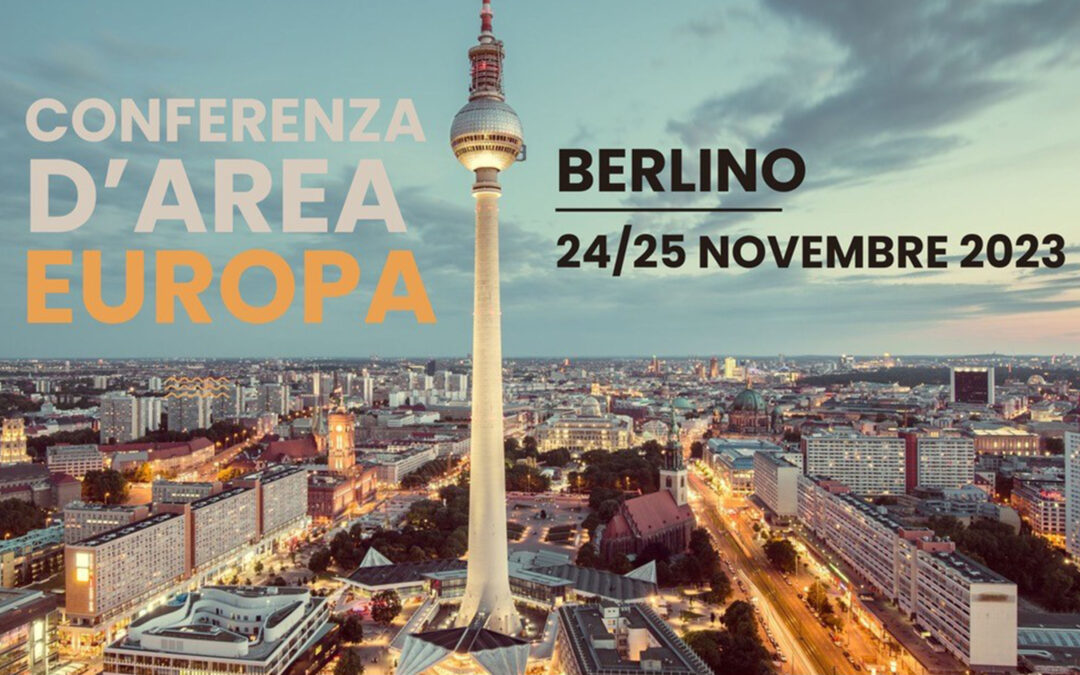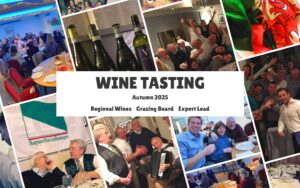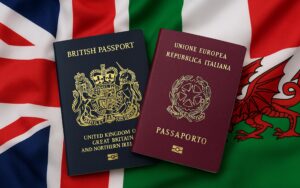Alessandro Strinati, grandson of Amici Val Ceno founding member, Pio Strinati, took time out of his busy schedule in Amsterdam where he works as a Fleet Management Engineer at GE Aerospace, to represent the AVC at the Consulta degli Emiliano-Romagnoli nel Mondo conference in Berlin at the end of 2023. The conference provided a rare opportunity to meet with, and gain insight from, associations around the world who make it their mission to bring together Emilia-Romagna diaspora.
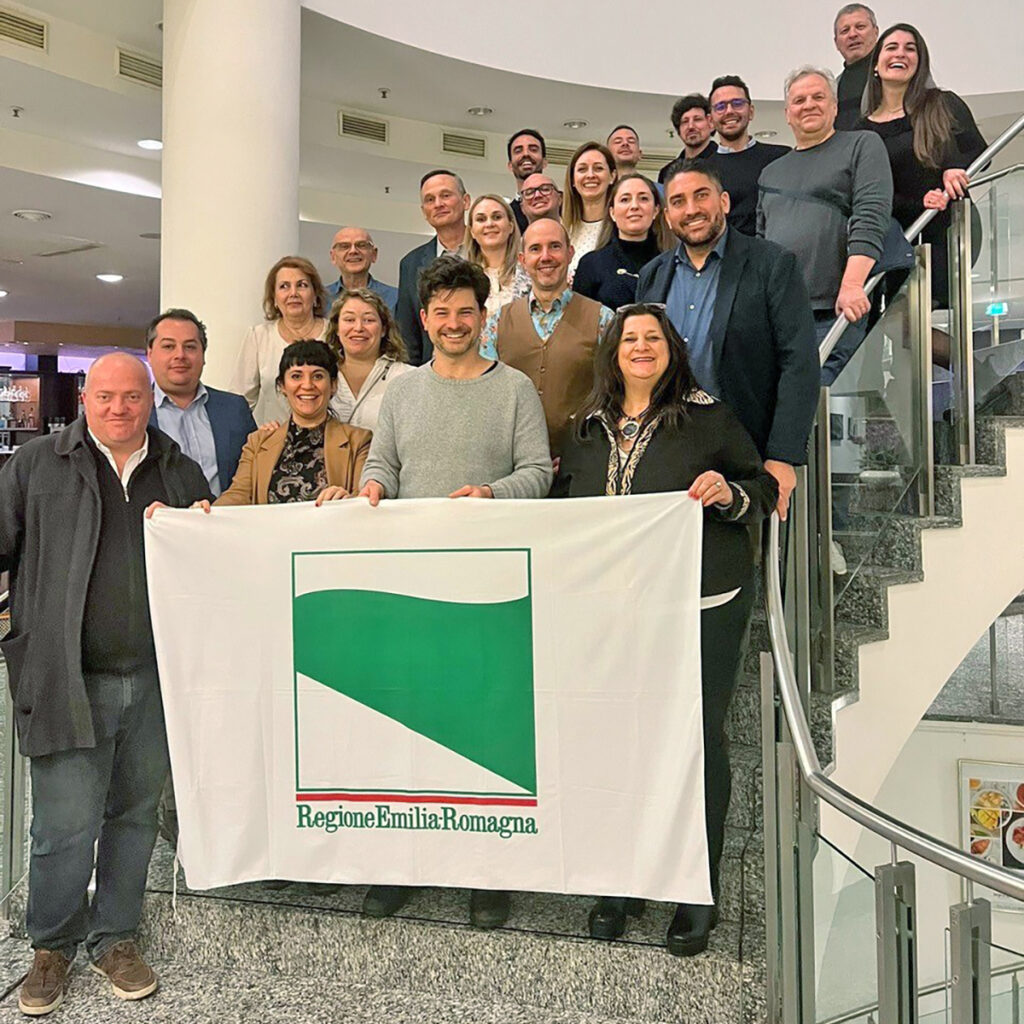
The event kicked-off with a warm welcome from Anna Bertoglio of the Italian consulate in Berlin, emphasising the importance of maintaining ties to Italy and the Emilia-Romagna region. Next to speak were the President, Marco Fabbri, and Vice President, Marilina Bertoncini, who provided overviews of their activities.
It was then time for the affiliated associations to present their activities, offering a glimpse into the diverse initiatives undertaken around the world.
From Berlin was Jonas, a first generation expatriate, who shared his association’s approach of organising dinners that foster a sense of community among expatriates but also welcome those with no links to Italy.
Next was Cesare, also a first generation expatriate representing Stuttgart. Cesare highlighted the challenges faced by associations in preserving the Italian language among third-generation descendants. He also shared how he organises, through his work at the Culture Institute, events such as art exhibitions; his next event is in collaboration with Panini stickers.
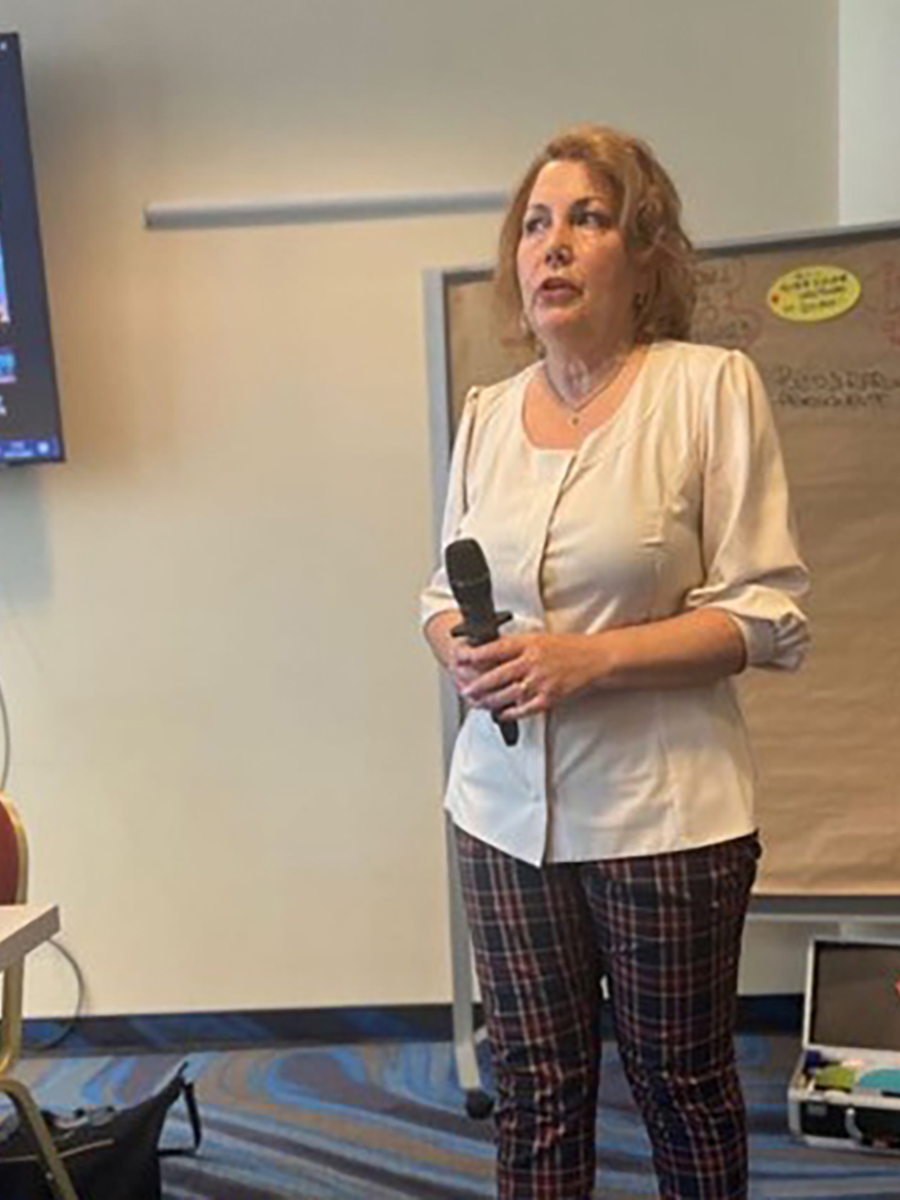
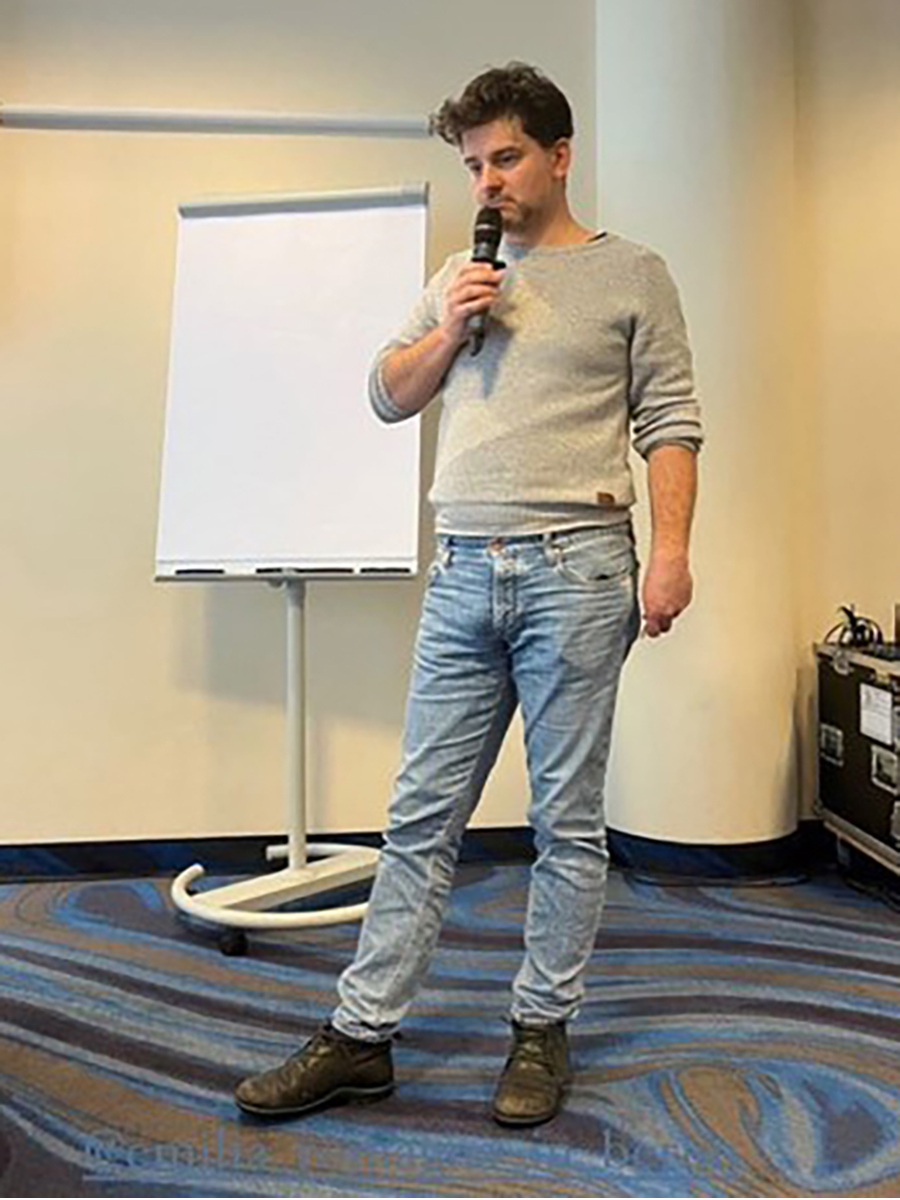
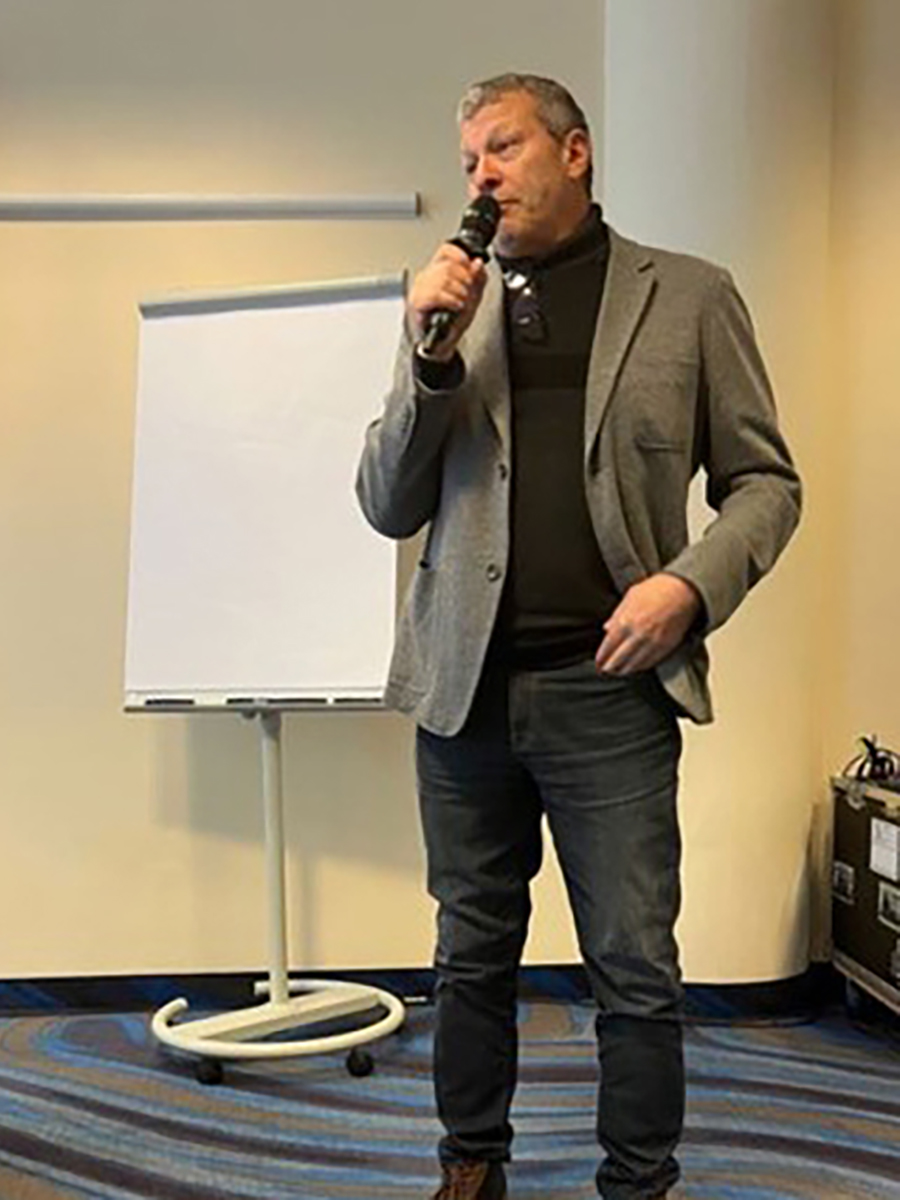
The Madrid association, AS.ER.ES, is the newest association having been founded in 2016 by four expatriates from Ferrara. Represented at the conference by Michele, he shared how they regularly host dinners and have recently started to host these in association with Parmigiano Reggiano and Lambrusco. Their members comprise Italians from Emilia-Romagna and other regions, as well as those with no Italian links.
Alain represented the French association, and has ties to Piacenza. He shared their cultural events, including the intriguing “Parlez-vous Piasintein” showcasing mini-shows in dialetto.
Following that, the delegation from Romania, Transylvania, and Moldova presented. Their ancestors had emigrated from Emilia-Romagna as skilled craftsmen. Together with their families, they played a vital role in constructing monuments for the king.
It was then Alessandro’s turn to present for the AVC. Alessandro told of our migration story from Val Ceno to the valleys of South Wales. The other delegates were keen to hear more about the Italian cafes owned by the Bardigiani natives and about the celebrated events like Scampagnata and Gare di Briscole. Interest was sparked in the French representatives, who expressed a desire to attend the next Scampagnata.
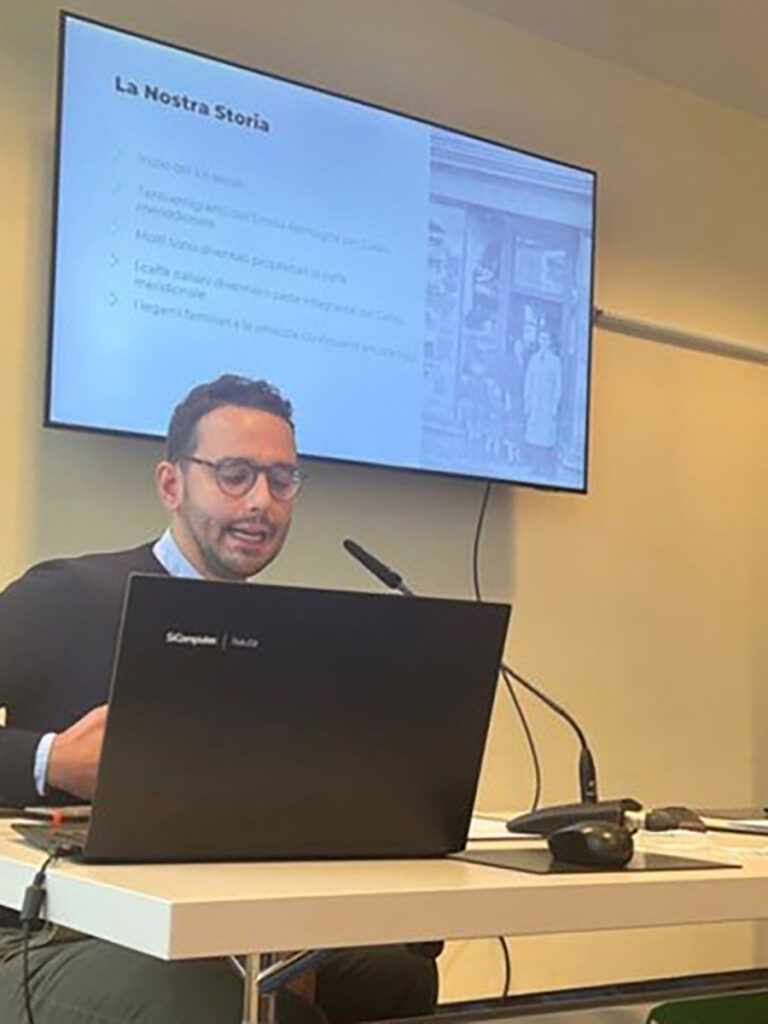
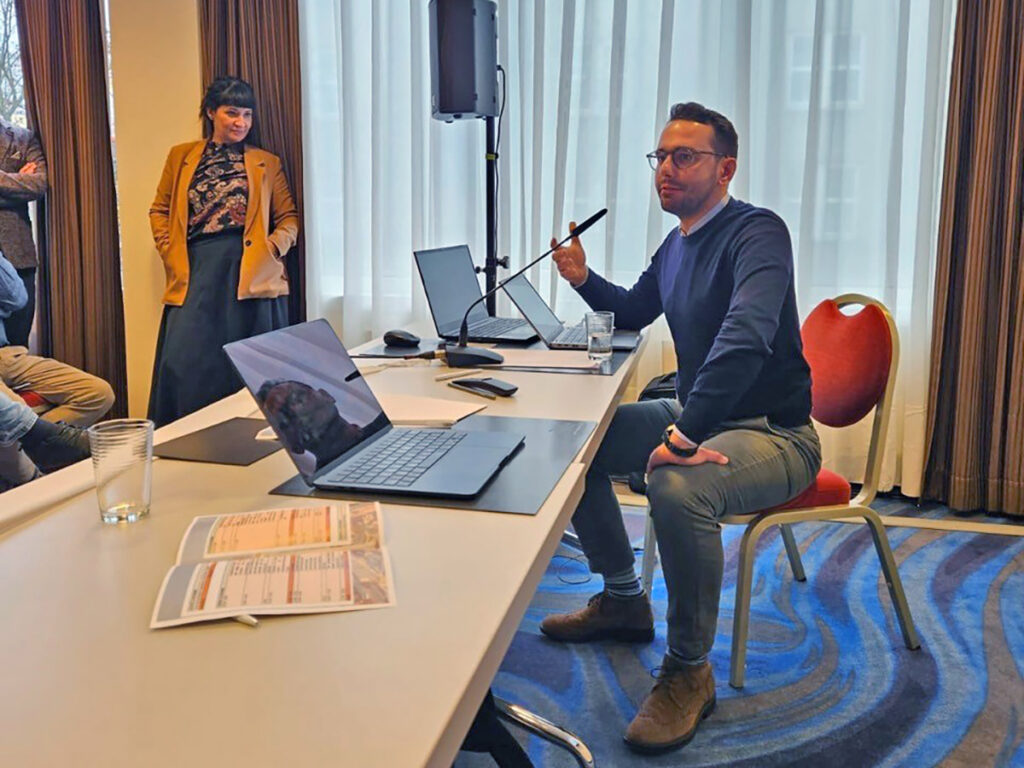
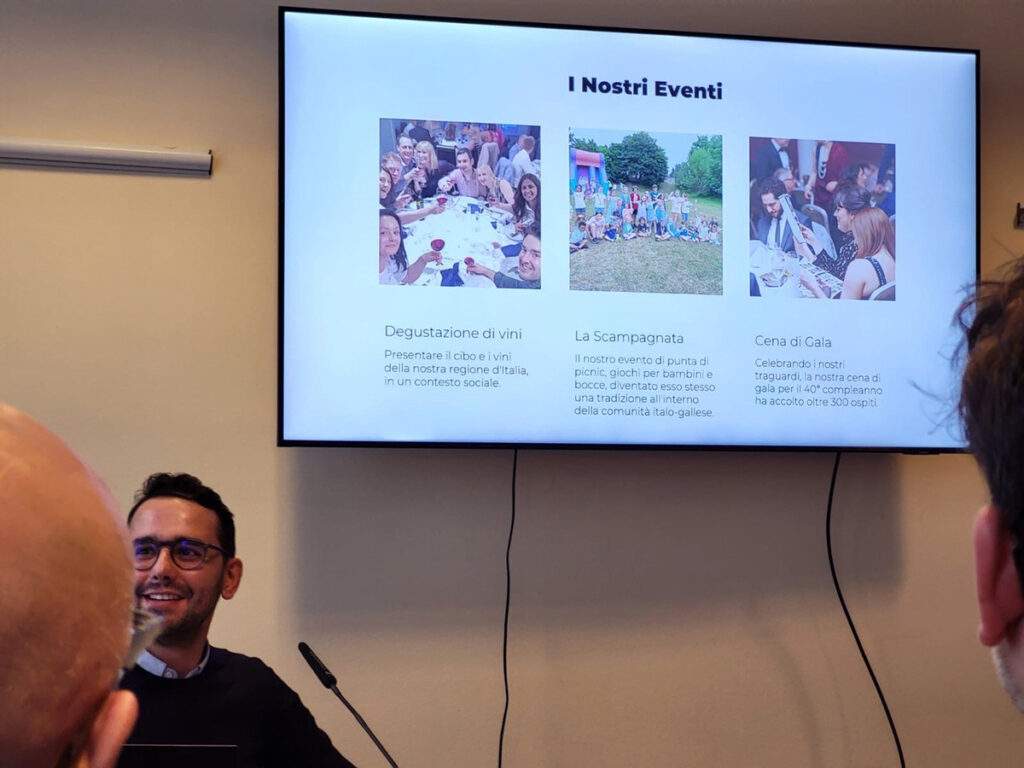
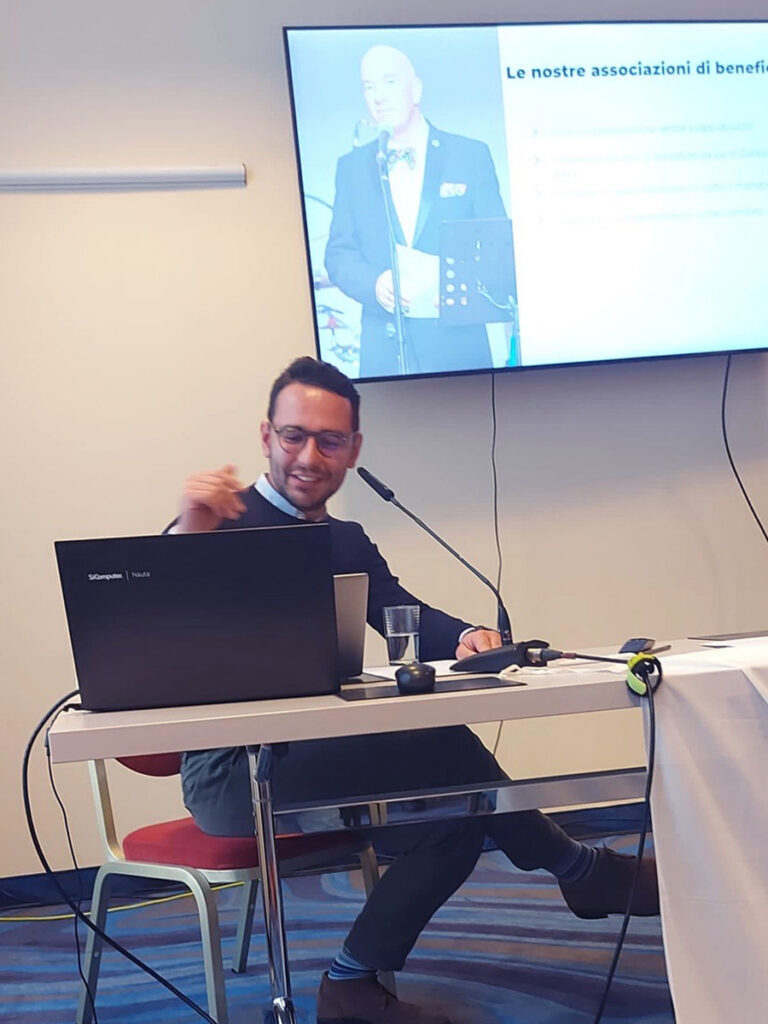
Last of the associations was Giulia from Lisbon, who shared her journey as a first-generation expatriate and her role as the president of the local Comites organisation. Giulia organises a myriad of events in Lisbon, ranging from dinners to gatherings for children.
Young Emilia-Romagna expatriates then shared their experiences of moving from Italy abroad to explore and find work. Chiara is now in Norway working in engineering alongside EU and government whilst getting her PhD, Giancarlo works in London for the Bank of England as a data scientist, and Serena is in Paris working in languages and helping immigrants and refugees get set up. Witnessing these diverse journeys emphasised the impactful contributions of individuals from Emilia-Romagna in many sectors, showcasing how these talented individuals play a crucial roles across the world.
Gianfranco then discussed the results of a survey by Consulta, distributed worldwide to young individuals of Emilia Romagna descent. The questionnaire captured the diverse perspectives of our global community and was translated into five languages. Clear were three major themes: maintaining links to Emilia-Romagna, promoting arts and culture, and preserving the Italian language. A common concern echoed across associations, and something we ourselves have seen in Wales, is the diminishing proficiency in Italian among the younger generations. The discussion also delved into the significant increase, thanks to schemes such as Erasmus, in emigration from Emilia-Romagna over the past decade.
Informative presentations on ITER (internationaltalents.art-er.it/it), Faenza’s tourism initiatives (www.faenzaondemand.it), and Document ER (docacasa.it) added depth to the conference. ITER’s goal to repatriate talent to Emilia-Romagna, Faenza’s innovative tourism efforts, and Document ER’s resources showcased the region’s commitment to reconnecting with its global community.
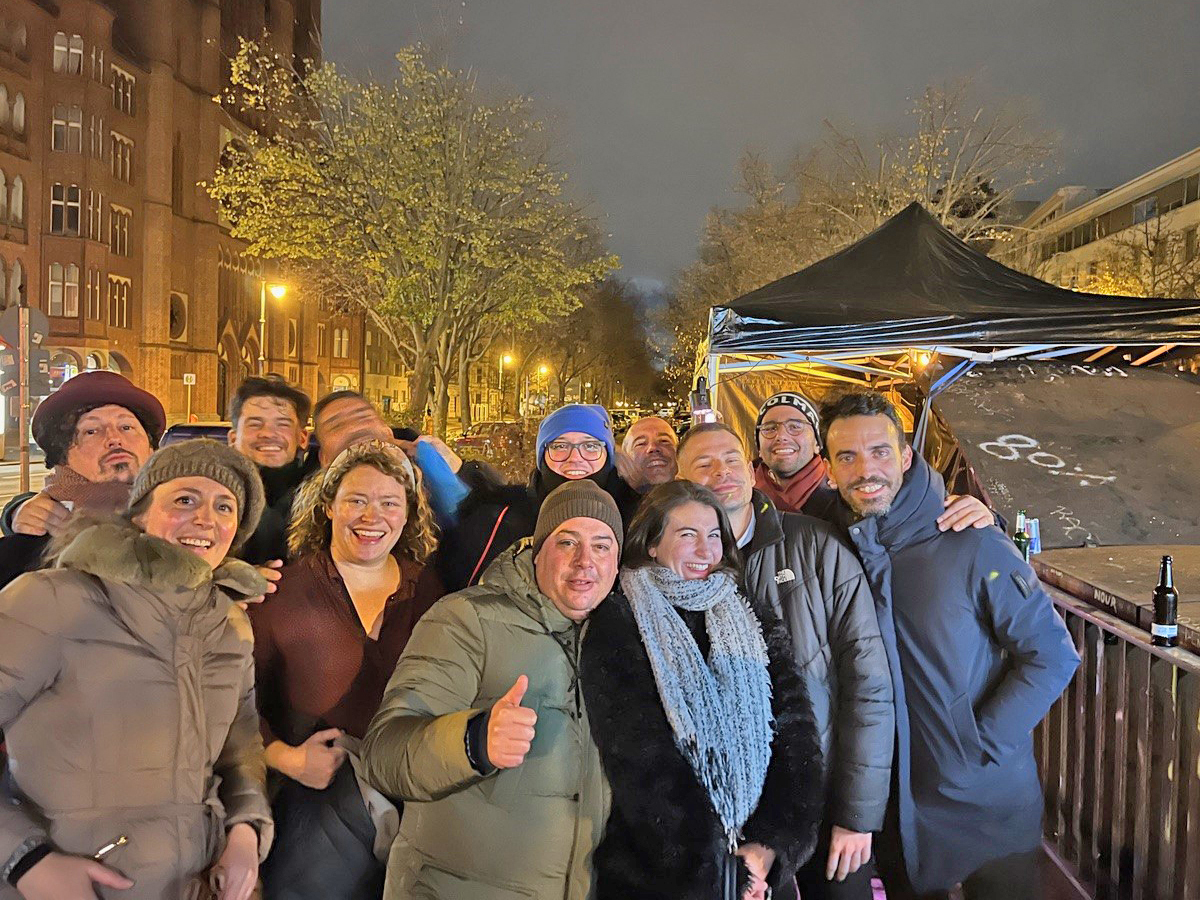
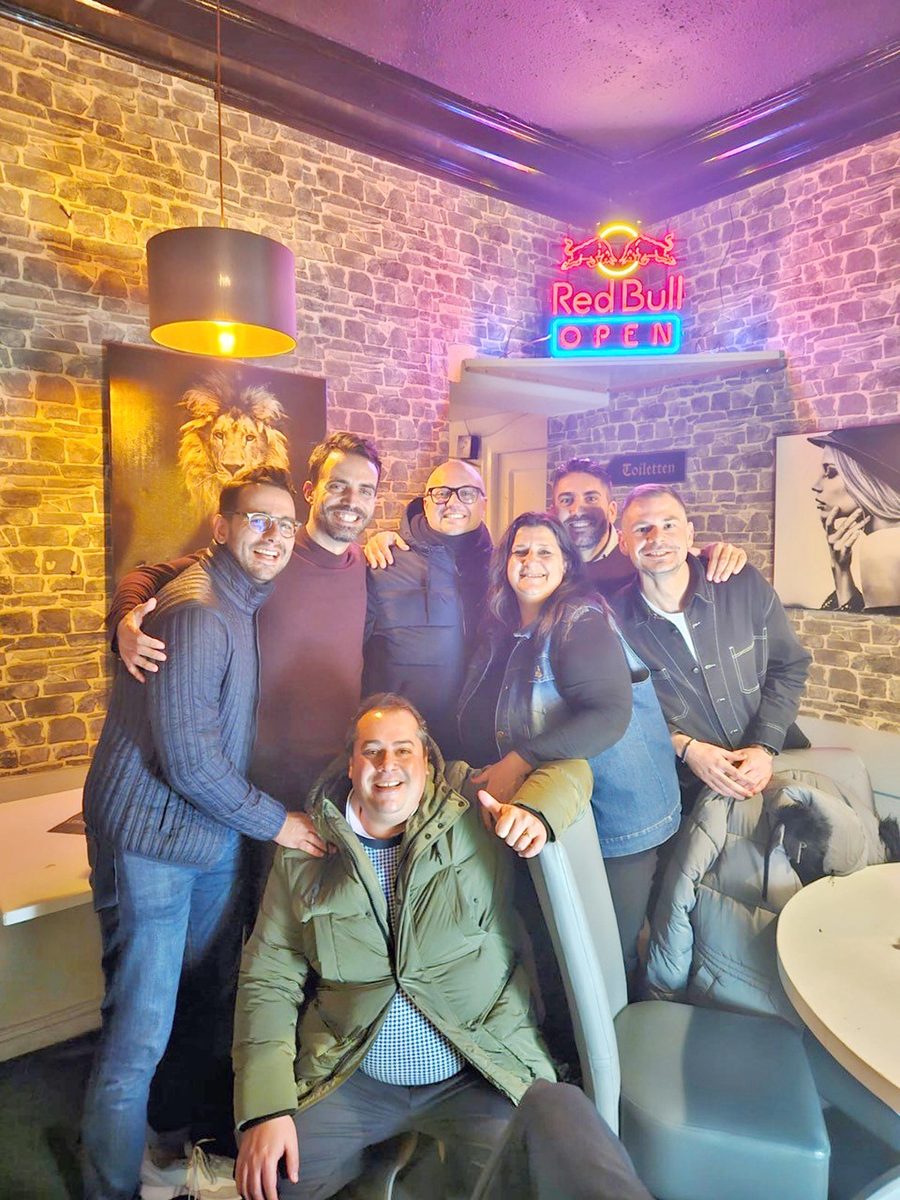
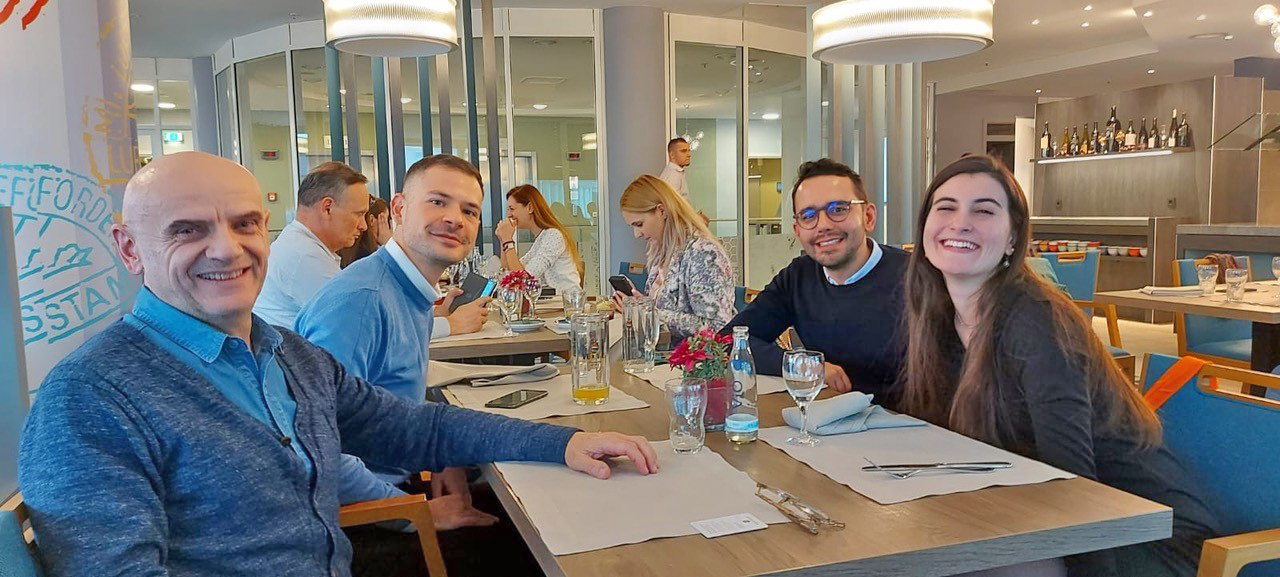
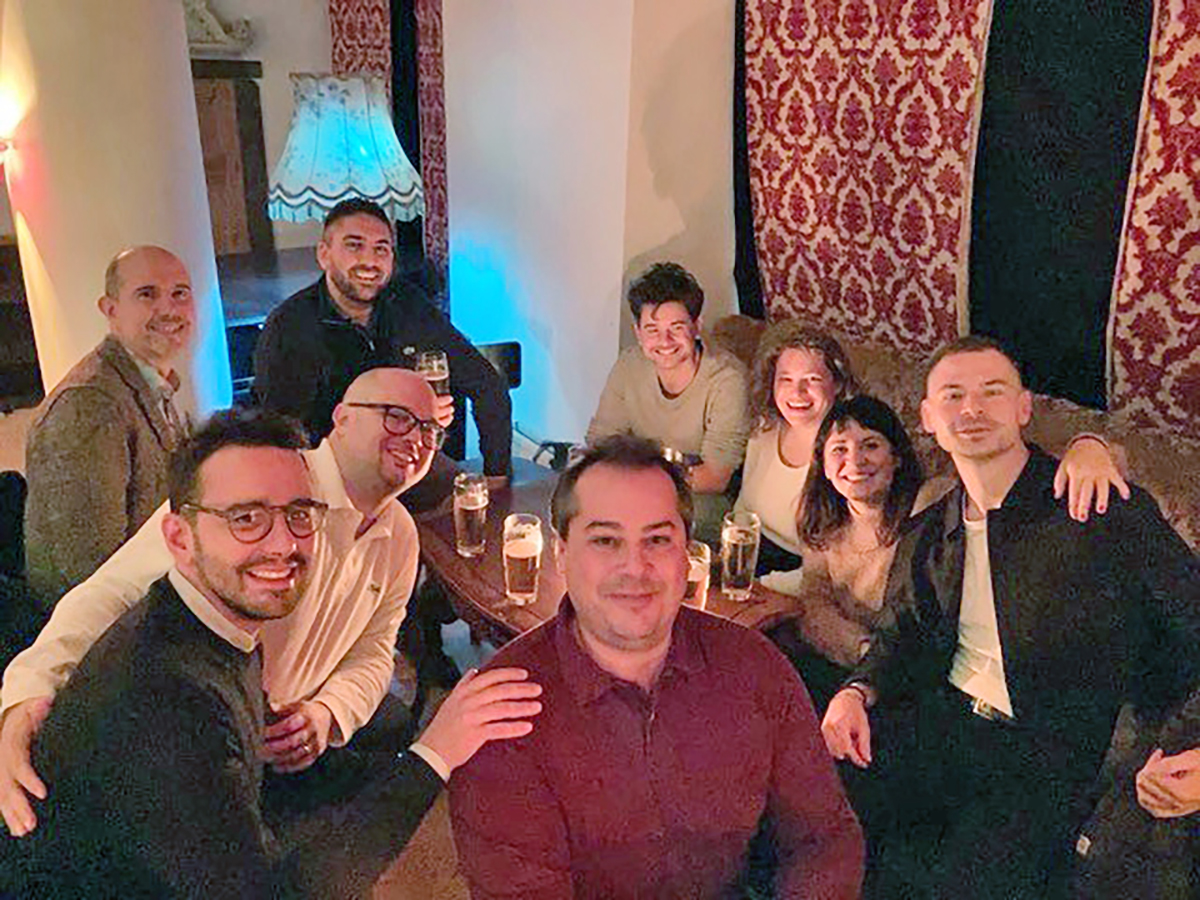
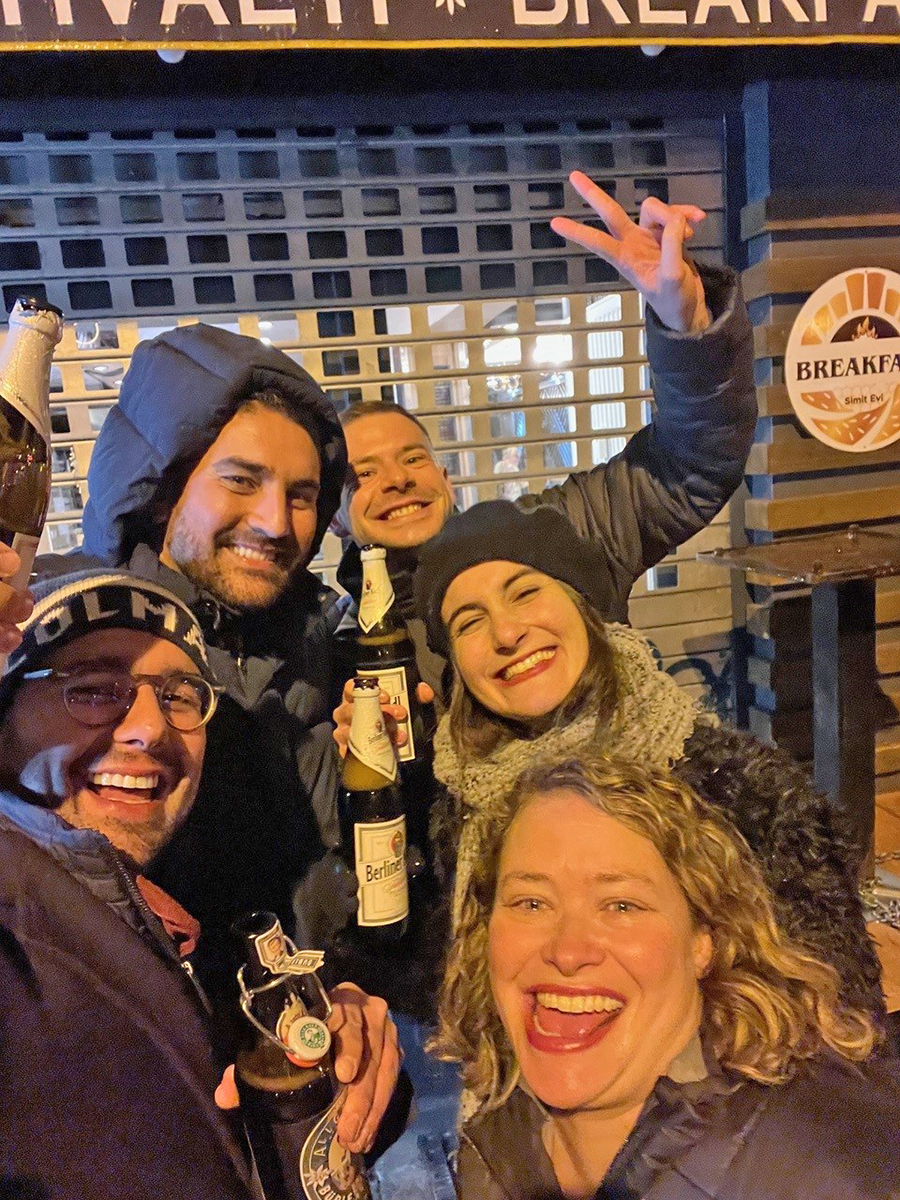
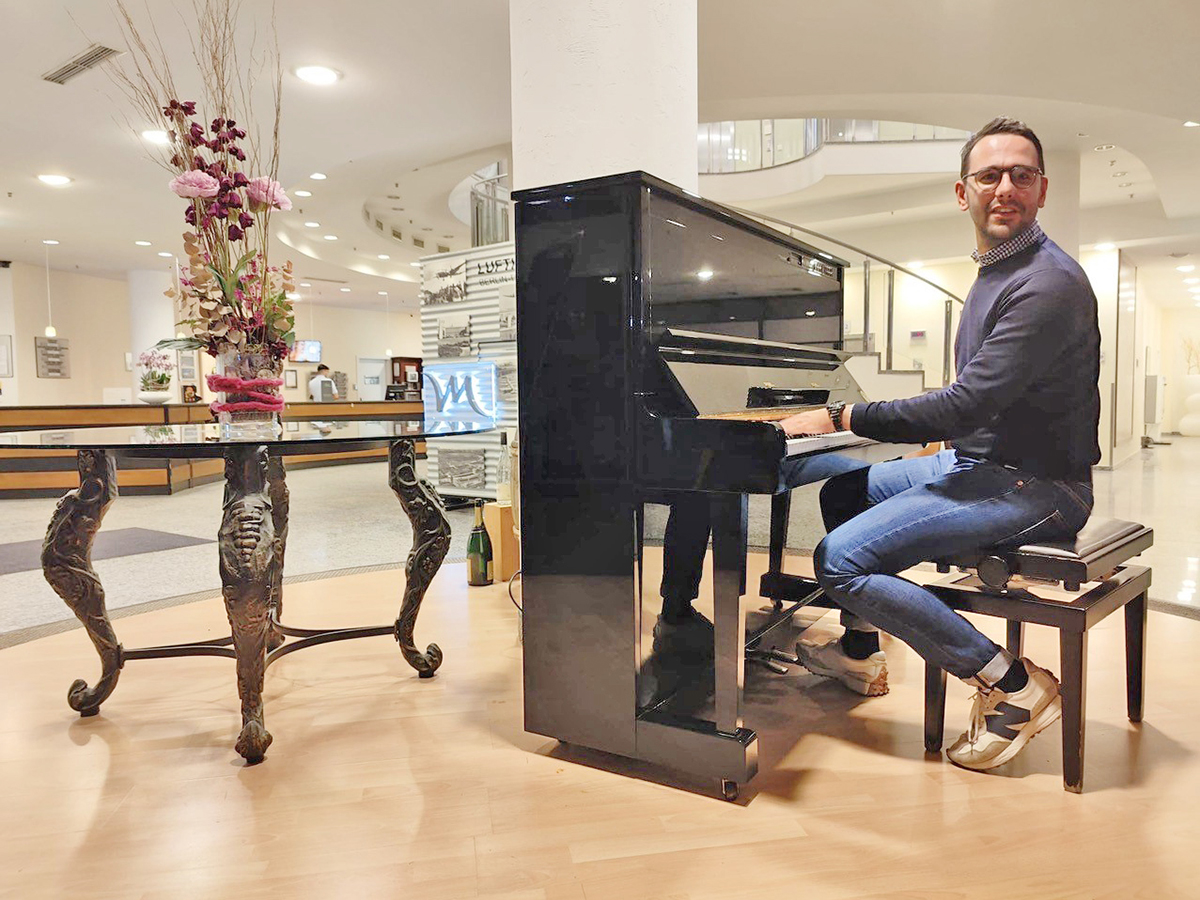
The conference offered a fantastic opportunity to interact and engage with the Consulta degli Emiliano-Romagnoli nel Mondo, as well as people from the amazing associations around the world. Not only has Alessandro’s feedback reinforced the immense value of the work carried out by the AVC, but the conference served as a powerful reminder that this association is an integral part of a larger global network. The diverse associations that make up that network share the common goal of preserving and fortifying the heritage of Emilia-Romagna on a global scale.
Grazie mille, Alessandro.

